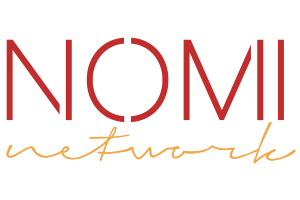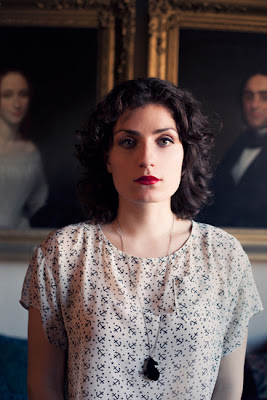Interview with Board Member George Ross

NN: So George, for starters, could you tell us a little about what you do for Nomi Network?
GR: Well, I’m an advisor. I sit on the Board of Directors and try and think up ways to involve everyone on the board. I do a lot of fundraising for World Vision and provide what background I can from all the work that I’ve done with other NGO’s.
NN: How did that get started?
GR: Well, I met Diana when she was in graduate school through some of our World Vision interns. Even back then in her first year of NYU she was working on the Nomi concept and we found some common elements between what she was doing and World Vision’s work. [World Vision] we have been advocates on Capitol Hill, so I stayed abreast of her work, gave guidance and encouraged the faith element in her work.
NN: And out of curiosity, what was your impression of Diana when you first met her?
GR: Well, let’s see. She was an extremely intelligent, wonderful woman looking for a way to serve others, to be entrepreneurial with a Christian mindset. I don’t know what she knew about human trafficking beforehand but she saw it (human trafficking) in spades in Cambodia and came back with a renewed purpose. Her commitment grew every week.
NN: Well, looking at your bio, you certainly wear a lot of hats! What was it about Nomi Network that told you this was a worthwhile investment of your time?
GR: Nomi’s model is a new model for relief and humanitarian aid, combining relief with economic development and creating a sustainable environment through the combined efforts of designers and business people. I’ve been here for a number of years and this is a special group. I think great things will arise out of the faith and commitment of the people working there. We started in Cambodia and we’ve done good work there and I’m looking forward to what we’re about to do in India. The situation in trafficking is worse now than it was 10 years, 20 years ago and Nomi Network is doing fantastic work to address the issue.
NN: What do you personally see as the biggest difficulties in development today? What can be done about it?
GR: Poverty in half the globe leads to inequality between men and women and quite often in those places, there are cultural values that don’t value education for women. Trafficking has so much to do with the place of respect and value of women. I just don’t know if we can break the cycle of poverty without education. And doing something about it? I think it’s about looking beyond ourselves for peace and justice.
NN: Actually, I probably should’ve asked this earlier on but how did you move from the private sector into humanitarian aid and development?
GR: Well, I came to World Vision through church. The pastor there gave us a challenge concerning HIV and AIDS in 2003 when I was chairman of the mission commission. We sat there on the commission and had to admit to ourselves that we didn’t know too much. So we sent out teams to survey the area and learn more and World Vision was one of the NGO’s that helped educate us. Eventually 3 members of our church spent 2 weeks in Africa and when they came back. Back then, 7 churches came together and made a covenant to eradicate AIDS in Africa. I’m just reminded of the Margaret Mead quote right now. “It takes just a few to change the world. Actually that’s all that ever have.”
NN: George, we’d love to hear a little bit more about your time with Nomi and other development organizations apart from the business models and economics. On a personal level, how has your work with Nomi affected you?
GR: Well I’ve become re-energized myself. I’ve retired a few times but I love the youth and the vision, the energy and passion that these young entrepreneurs bring and it never fails to pull me back in.
NN: George, you’ve been a tremendous pillar in the NGO and development community and I bet there are a ton of people who aspire to do what you’ve done. Could you tell us a little about your own personal heroes and who it is that you look up to?
GR: Mmm, wow. Well, I love Job in the Bible. He was such a good Christian but you know he still had lessons to learn. We all have lessons to learn. Troubles kept coming, and boy did they come, but he stuck to it and never gave up. My family has been such an encouragement to me during those lessons. And well, my grandparents were farmers and the way they modeled their values to me early on in life really left an impact on me: waking up early, feeding the animals and caring for the community. They drove around in a pick-up truck bringing people to church and they always left some produce with the people that they picked up. They really taught me to go beyond yourself, to do more than you ever thought you could do. These kind of hard-working, everyday folk who founded this country are my heroes too.
NN: Last question! If you had the ear of all the young and hungry social entrepreneurs, the Diana Mao’s and Alissa Moore’s of the world, what would you say to them? What would you want to pass down to them?
GR: I’d encourage them to follow their dreams and to use those dreams to help others. Work where you are but keep your eyes to the horizon and to helping others. I’d tell them to keep a balanced life and take care of themselves. Don’t be single-minded but to really live a full life. If they burn out, it doesn’t really do anybody any good. To become exquisite listeners as they grow up; if they miss a sign that they weren’t doing well, or their family wasn’t doing well, then that just wouldn’t do.
NN: Thank you, George. It’s been great speaking with you.
GR: Thank you.
-interview by Stanley Lee


Comments
Post a Comment